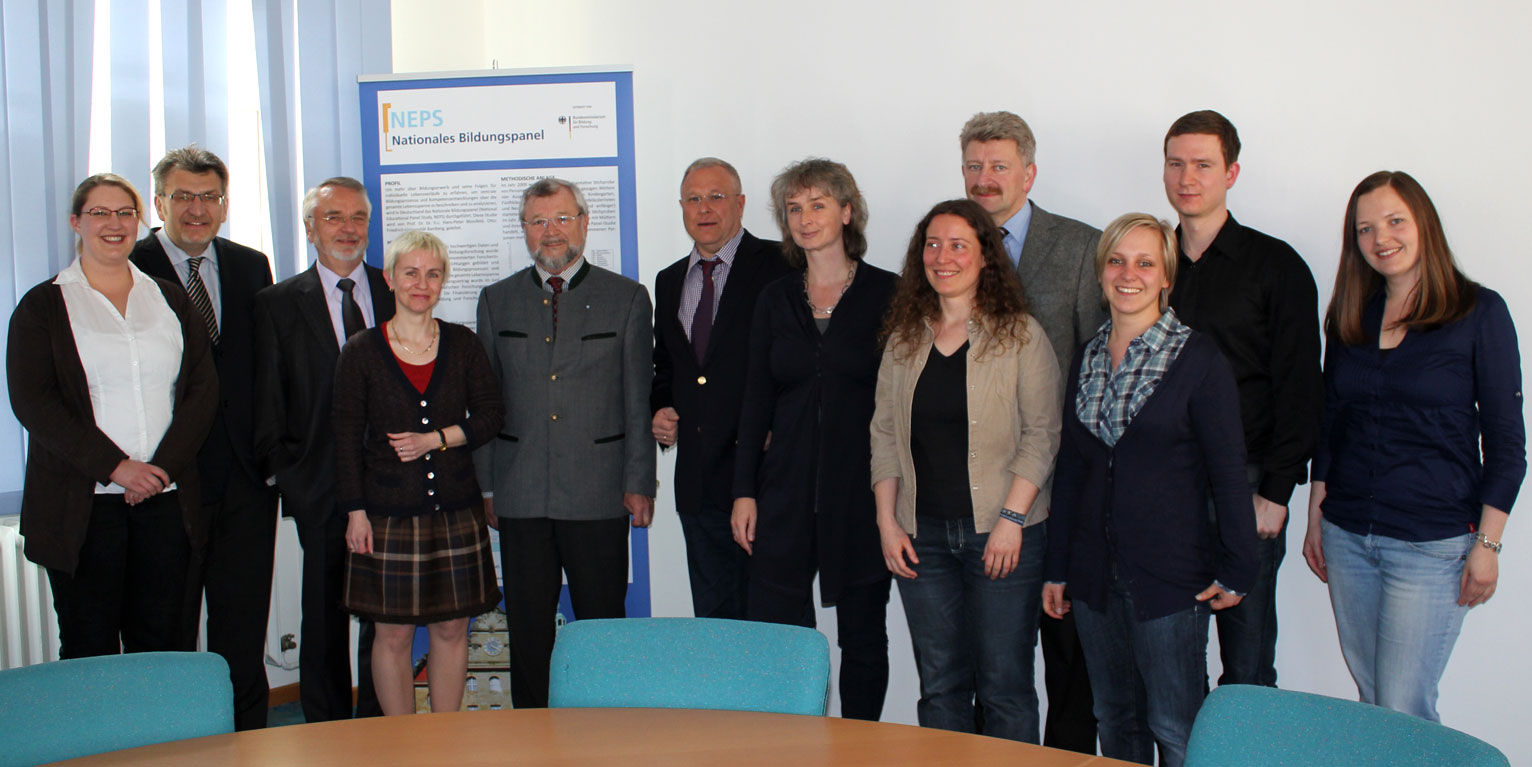The former head of department of the Bavarian Ministry of Education and Cultural Affairs, Josef Erhard, visited Bamberg on April 26, and gave both the project board and members of the NEPS some information about the developments made in empirical educational research from the standpoint of the Conference of the Ministers of Education and Cultural Affairs.

In the photo (from left to right): A. Kammerer, W. Hoderlein, M. Egner, Dr. J. v. Maurice, J. Erhard, Prof. Dr. Dr. h.c. Hans-Peter Blossfeld, Dr. C. Artelt, G. Will, G. Bolz, A. Biedermann, J. Skopek, D. Fey
Managing Director and Principal Investigator of the NEPS, Prof. Dr. h. c. Hans-Peter Blossfeld, welcomed Josef Erhard by appreciating the support he had given the project while working in the Ministry of Education and Cultural Affairs and also afterwards. Josef Erhard pointed out that he will watch the progress of the NEPS with great interest. In his review on structural debates, which have been discussed in empirical educational research for the last decades, he focused on the initial criticism against large-scale assessments. According to Josef Erhard, “studies like the National Educational Panel Study are necessary to depict the pathways of individual school careers due to the fact that school achievement studies are only half the battle.” The insight into the developments of empirical educational research from the standpoint of the former head of the Conference of the Ministers of Education and Cultural Affairs was highly informative and afterwards, the participants had the opportunity to pose pointed questions during the discussion. NEPS members gladly listened to Josef Erhard’s advice concerning the transfer of science into practice and the education consultation. Together with Prof. Blossfeld they discussed the possibilities to carry out those ideas in practice. In the end, Josef Erhard confirmed that people are already waiting for NEPS data and their publications and called the study an “indispensable instrument for the future.”